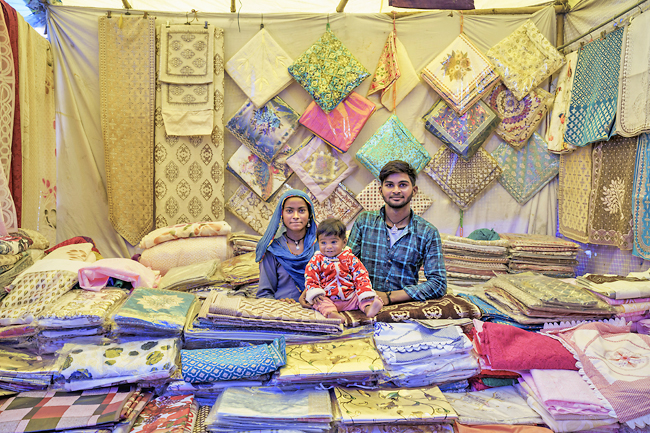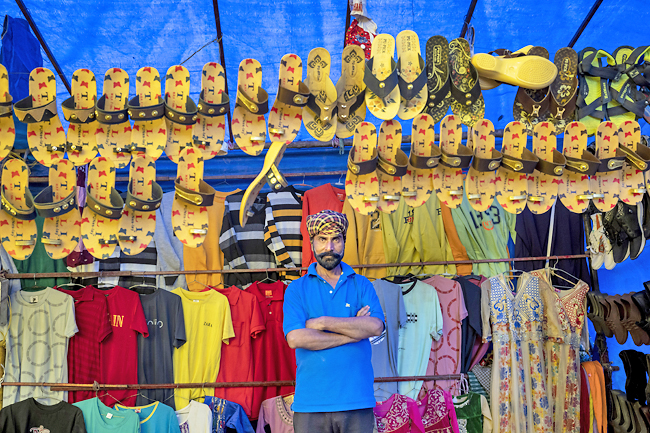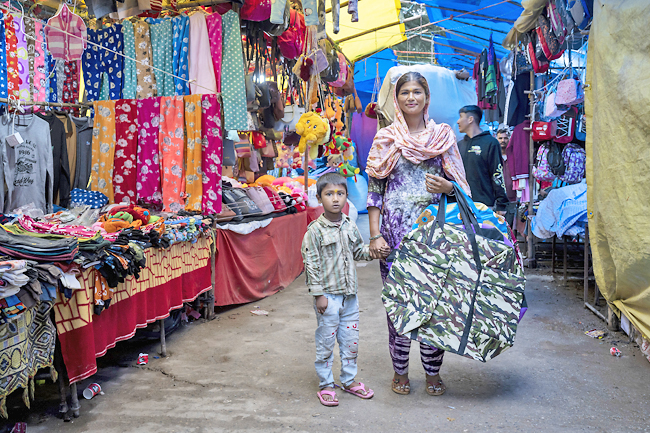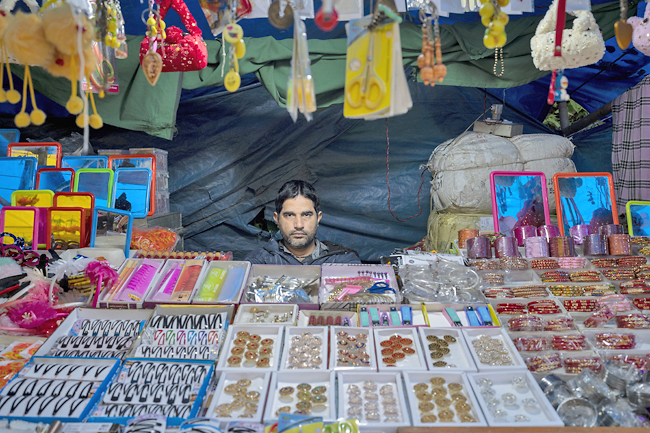Ashwini Bhatia
DHARMSALA, INDIA (AP) – The enterprising sellers move from one small north Indian town to another carrying bags full of colourful wares to sell at local fairs, keeping centuries-old traditions alive when roving fairs were the main vehicle of commerce.
Large sheets of tarpaulin, repurposed strings, folding tables, bare-minimum bedding, cooking gas and a few utensils to cook are all they need for both business and home.
Some sell traditional handmade items, such as iron farming implements and cane baskets, that are difficult to find in modern marketplaces.
But people also throng their stalls to buy bright battery-operated toys, mobile phone accessories, sunglasses, plastic flowers, bed linen, trendy clothes and crockery.
The workday starts early and drags late, with family members providing extra hands to run their roaming business smoothly.




The money the hardy sellers earn from their constant labour is never enough.
But their main customers, too, often have little cash to spare for shopping.
They bargain hard without being mean-spirited, making their transactions egalitarian and in spirit more like the bartering of old.
In a world with little room for such traditions, these roaming marketplaces are still sought after in small Indian towns where multinational brand outlets are yet to dominate commerce.
The fairs sometimes coincide with festivals, bringing people out of their homes seeking religious and leisure activities.
In McLeodganj, upper Dharmsala in northern Himachal Pradesh state, the main fair takes place during Nahaan, a bathing festival at a lake.
Hundreds of people take a dip in the lake then shop and crowd eateries at the fair. Children are attracted to the merry-go-rounds, trampolines, ring-toss and balloon-shooting stalls.
The future for such markets is uncertain, but the traders haven’t given it up. They are defiant, sometimes smiling, but never despondent.



















































